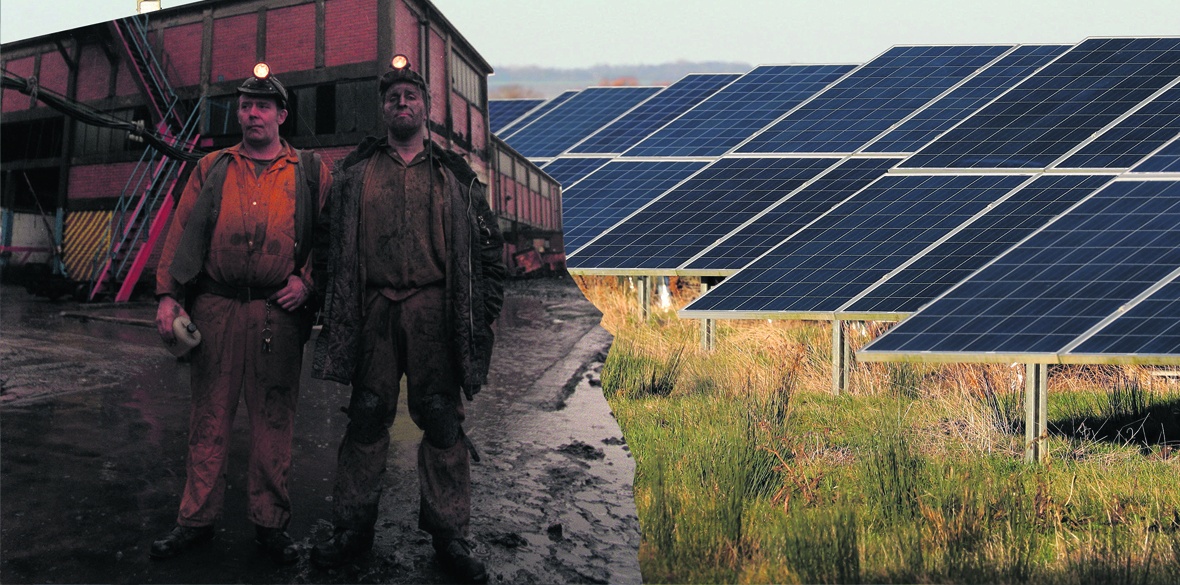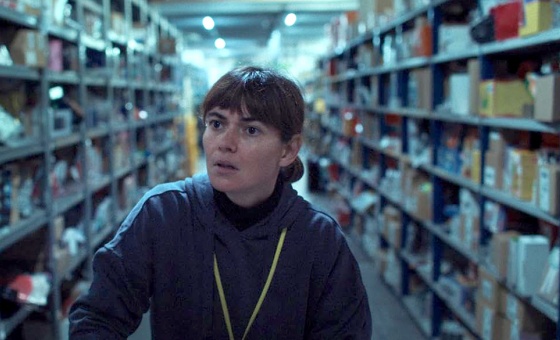This is the last article you can read this month
You can read more article this month
You can read more articles this month
Sorry your limit is up for this month
Reset on:
Please help support the Morning Star by subscribing here
THE British coal industry has changed out of all recognition over the last few decades, but despite all the changes that have taken place, Britain still has an undeniable and enduring need for it for a range of different purposes.
However, despite the country still having ample coal resources that could easily meet this need, along with the technical and commercial knowledge required to produce it safely, efficiently and as environmentally responsibly as possible, we have increasingly seen imported supplies taking precedence over domestic resources in recent years.
Of the 12 million tonnes of coal needed by Britain during 2018, less than a quarter — only 2.6 million tonnes — was produced in the country, despite the job creation and local investment that naturally go along with this sort of large-scale industrial activity.
It’s a situation that defies common sense, especially when the substantial greenhouse gas emissions caused by transporting coal imports many thousands of miles to Britain are taken into consideration, and we believe there is a pressing case for action to be taken to reverse this unnecessary trend.
Coal’s role in the generation of electricity has gradually declined over the last few years as new renewable energy technologies have become ever more widely used.
That said, the arrival of the “Beast from the East” in 2018 saw the proportion of Britain’s electricity generated through the use of coal leap back up to around 30 per cent, which demonstrated its ongoing usefulness as a reliable, secure back-up means for creating the power that we all use.
There is also the irony that the basic components of any source of alternative green energy require steel and concrete, both of which require coal as part of the manufacturing process.
Putting energy generation to one side, Britain still needs between five and six million tonnes of coal every year just to supply a range of essential industrial customers, including steel and cement manufacturers and food producers.
An escalating shortfall in domestic supply has meant that this need has increasingly been met recently through coal imports from distant locations such as the US, Colombia, Australia and most especially Russia, from where coal import volumes doubled between 2016 and 2018.
The latest official figures on the UK’s production and usage of coal show that more than four times the amount was imported from overseas during the first quarter of 2019 than was produced domestically.
Almost three-quarters of the 2.57 million tonnes of coal imported into Britain between January and March this year came from Russia and the US, with a further half a million tonnes combined coming from Australia (299,000) and Colombia (201,000).
The figures also clearly demonstrate that the amount required in Britain for industrial purposes is remaining fairly steady.
Taking all this into account, it would seem only common sense to ask the question: “If we’re still going to be using coal for the foreseeable future, why we aren’t mining more, or indeed all of it from our own resources?”
Our country has some of the strictest planning rules and mining regulations in the world, which provide clear guidelines for and oversight of how mining environments are managed.
This offers far greater control and oversight than we have of other such sites in distant locations where less emphasis may well be placed on environmental management, health and safety and working conditions.
As noted above, the transport of coal from overseas is also an important consideration, especially in terms of the greenhouse gas emissions that bringing any items several thousand miles would create.
Recent industry research found that the amount of greenhouse gas emissions generated by the transport alone of Russian imports to Britain is between five and seven times higher than the equivalent figure for transporting coal mined here to domestic customers.
With Britain’s continuing drive to reduce its carbon emissions, how can needlessly increasing them in this way make any sense at all?
One further issue is the fact that, as well as providing coal, surface mines are also the only source of fireclay, which is used to make house bricks and which is found lying underneath coal seams.
With the drive continuing to build more homes right across Britain and so increase the supply of available properties in areas where there simply aren’t enough to meet local needs, demand for fireclay is only going to grow in the foreseeable future.
Once again, where is the sense in importing either this vital raw material or the finished bricks from from overseas when local jobs will be created, domestic supply chain investment realised, and transportation-related greenhouse gas emissions reduced by using readily available domestic supplies?
Despite all the technological advances that we’ve witnessed during the 21st century, coal still has a crucial industrial role to play and the economic, social and environmental benefits of enabling producers to fulfil this domestic need from domestic resources are clear for all to see.
There are still many hundreds of British jobs sustained directly by the surface mining industry, along with many hundreds more in the sector’s supply chain, often in deprived communities where it is the single largest employer and where it has been putting food on local families’ tables for decades.
There is no sense or justification in essentially exporting union members’ jobs by bringing in ever-greater volumes of coal from overseas when it can be produced more safely, efficiently and with greater environmental oversight at home.
Using more British coal and fireclay will help to create a far more sustainable supply chain for the domestic industries that have an essential need for it and will also help to secure the jobs of the many hundreds of highly skilled people who work to produce it.
Graham Walton is a Unite shop steward and secretary of its coal combine.








